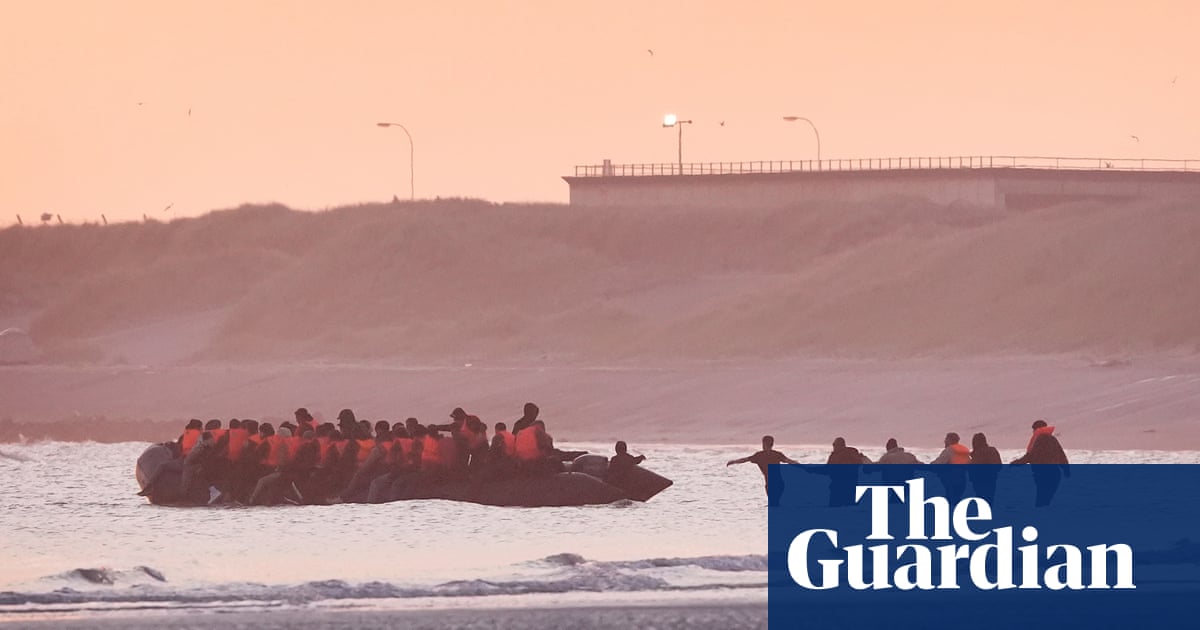British taxpayers will be expected to contribute more money to stop irregular migration as the French government prepares to halt small boats carrying asylum seekers even if they are already at sea.
It is understood there will be extra costs associated with the scheme to tackle boats within 300 metres of the shore – including paying for police, boats and drones – which the UK will be asked to share withFrance.
The development comes as a refugee charity that successfully intervened to stop the UK sending boats back to France said it would explore legal avenues to stop the latest tactic. It is understood the French government is braced for court challenges.
Home Office officials confirmed on Wednesday that the French government hoped to launch interventions in the Channel and in nearby waterways in July. It follows increasing use by traffickers of “taxi boats”, which pick up asylum seekers a few hundred yards from the shore before taking them to the UK.
The strategy aims to be ready in time for the Franco-British summit, which begins on 8 July. This coincides with the state visit to London of Emmanuel Macron, the French president.
The scheme is intended to give the French authorities the power to halt dinghies that “taxi” up to beaches from nearby waterways. Current guidelines prevent French police from intervening offshore unless it is to rescue passengers in distress. In practice, the policy means officers can stop boats leaving the beach by puncturing them, but are restricted once they are in the water.
The French government has changed the framework so that its officers can now operate in shallow waters up to 300 metres from the coast, allowing them to intercept ‘taxi boats”.
The UK government will be expected by Paris to contribute further funds to help pay for more officers and equipment along the coast.
The UK signed a £480m deal two years ago to pay for additional border patrols and surveillance equipment such as drones and night-vision binoculars. But government sources pointed out that Keir Starmer agreed a deal with Macron at the start of the year to increase measures to halt Channel crossings.
This led to a formal agreement a month later under which the UK extended its deal to pay for policing French beaches in return for new measures to stem the flow of boats.
France could seek extra funds from the UK for the Compagnie de Marche, a specialist unit of enforcement officers operating on beaches to tackle the people-smuggling trade. Announced in February this year and allocated £2.2m from existing funds, the unit’s officers have public order powers to apprehend smugglers and intercept crossings. The unit could be expanded, it is understood.
Violent confrontations on French beaches have increased. In a recent incident, French officers confronting a suspect were sprayed with petrol and told they would be set alight unless they backed off.
France is expanding its naval forces with six new patrol boats that can rescue migrants and intercept “taxi boats” before they leave for the UK, the Telegraph reported.
Sign up toFirst Edition
Our morning email breaks down the key stories of the day, telling you what’s happening and why it matters
after newsletter promotion
The French government is expecting legal challenges to come from charities and NGOs, either through the French or European courts.
A British charity that operates in France has said it plans to explore possible legal challenges to stop the tactic.
Steve Smith, the chief executive of Care4Calais, said: “When the last Tory government tried to do pushbacks in the Channel, Care4Calais initiated a legal challenge and won. Any attempt to introduce interceptions in French waters must face the same level of resistance. Anything that puts human lives at risk must be opposed, including considering all legal avenues to defeat it.”
The UK government has suggested that improved weather conditions may be a factor behind the sharp rise in small boat crossings so far this year. According to official figures, 11,074 people crossed the Channel on small boats before May – nearly 50% more than during the same period in 2024.
A Home Office report links this increase to a greater number of “red days” – when weather and sea conditions are more likely to allow for small boat journeys. Between January and April, there were 60 such days, compared with 27 last year.
More than 1,100 migrants crossed the Channel on Saturday, official data shows, the highest number recorded in a single day so far in 2025. It brings the provisional total of people making the perilous journey so far this year to 14,811.
